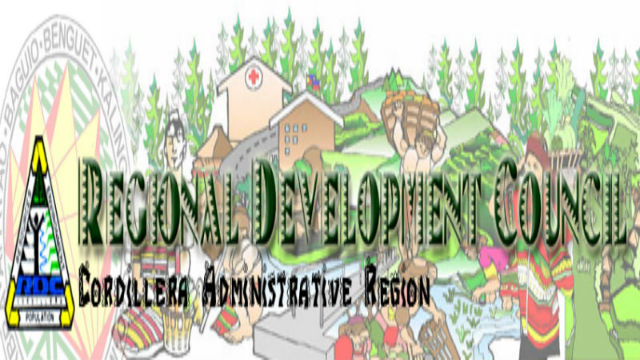The Regional Research, Development, and Innovation Committee (RRDIC), a support committee under the Regional Development Council (RDC), recently launched two research and development (R&D) programs, namely, the Program Boondock: A Mountain Engineering Center Towards Sustainable Infrastructure and Upland Water Security (Program Boondock); and, Ensuring Water Security and Climate Resilience for Mountain Indigenous Communities of the Cordillera through Technology-Enhanced Decision Support Tools (Program Danum), which are both funded by the Department of Science Technology (DOST) through the Niche Centers in the Regions for R&D (NICER) and National Research Council of the Philippines (NRCP), respectively.
The Program Boondock is a mountain engineering intervention which is a discipline that deals with engineering solutions to community needs considering the challenges of a mountainous terrain unique to the Cordillera region. It has two major components that are interconnected with each other, the subcomponents of which are to be implemented by the Saint Louis University (SLU), University of the Cordilleras (UC), Kalinga State University (KSC), and the Watershed and Water Resources Research Development and Extension Center (WWRRDEC). All the components are expected to end after 3 years.
The Program Danum, on the other hand, aims to ensure water security for mountain communities in the Cordillera through technology-enhanced decision support tools for the management of safe water supplies, watershed, and river water quality. It has a project duration of 2 years. The Mountain Province State Polytechnic College (MPSPC) and UC collaborate to implement this program, with the latter elected as the project leader.
Both programs are expected to increase agricultural productivity, enhance physical mobility and access to infrastructure services, promote ecotourism, and improve human development owing to food and water security. These outcomes are consistent with the priorities set in the updated Philippine Development Plan 2017-2022 and the updated Cordillera Regional Development Plan 2017-2022. They also respond to key development issues and concerns that are unique to the region especially on the appropriateness of planning and design standards for infrastructure facilities, disaster risk reduction and climate change adaptation.
During the launching program, RRDIC Chairperson and DOST-CAR Regional Director Nancy A. Bantog thanked the national and regional line agencies, local government units, public and private institutions, and research consortia for supporting said DOST-CAR’s R&D programs. She outlined the importance of science, technology, and innovation as solutions to some of the challenges for regional development, particularly when stakeholders work together.
She proudly conveyed to the participants that the two R&D programs emanated from the RRDIC which the Regional Development Council favorably endorsed to DOST-Central Office to avail of the research funds from NICER and NRCP with the combined amount of Php 77.1 million grants. The DOST-CAR serves as the chair of the RRDIC while the NEDA-CAR is the vice-chair. By Bob Lyndon B. Daroya













